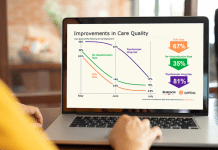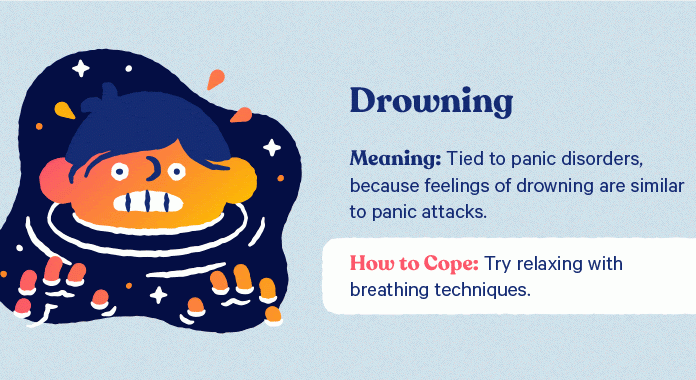As the global population continues to age, there is an increasing need for specialized care for older adults, particularly those with acute or complex medical needs. In response to this growing demand, nurse practitioners with a Doctor of Nursing Practice (DNP) in Adult-Gerontology Acute Care (AGACNP) are emerging as a vital component of the healthcare workforce.
These highly trained professionals possess advanced clinical and leadership skills and are equipped to provide comprehensive, patient-centered care in a variety of acute care settings.
In this article, we will explore the future of adult gerontology acute care and the increasing need for DNP AGACNPs to address the healthcare needs of older adults.
The Increasing Aging Population and the Need for Specialized Care
As the global population continues to age, there is a growing need for specialized healthcare services to meet the complex medical and social needs of older adults.
According to the World Health Organization, in 2030, the proportion of individuals aged 60 years or older will reach 1 in 6 globally. This indicates an increase in the share of the population from 1 billion in 2020 to 1.4 billion. By 2050, the number of people aged 60 years and older is projected to double, reaching 2.1 billion. Moreover, the population of individuals aged 80 years or older is anticipated to triple by 2050, reaching 426 million, compared to the year 2020.
This demographic shift has significant implications for the healthcare industry, with a greater demand for specialized care for chronic disease, dementia, and mobility issues.
As a result, there is a pressing need for healthcare professionals who are trained and equipped to provide high-quality, patient-centered care to older adults, particularly those with acute or complex medical needs.
The Need for Improved Patient Outcomes and Reduced Healthcare Costs
According to the World Economic Forum, the current healthcare crisis on a global scale is defined by disparities in healthcare accessibility, accompanied by escalating expenses and economic strains on households, individuals, and governments. The substantial growth in healthcare budgets, supported by considerable increases in government spending, has resulted in healthcare expenditure accounting for approximately 11% of the global GDP, a record high.
Additionally, it is predicted that healthcare expenses will exceed GDP growth over the next 15 years. These figures raise concerns regarding the sustainability and ability of global healthcare systems to handle such a trend.
With these concerns, there is a growing focus on improving patient outcomes while simultaneously reducing healthcare costs. With the increasing prevalence of chronic disease and complex medical needs among older adults, there is a need for innovative approaches to care delivery that can improve patient outcomes while also lowering costs.
By leveraging the advanced clinical and leadership skills of DNP AGACNPs, healthcare organizations can improve patient outcomes by delivering high-quality, patient-centered care that is tailored to the unique needs of older adults.
Additionally, DNP AGACNPs can play a key role in reducing healthcare costs by implementing evidence-based practices that lead to more efficient and effective care delivery.
Overall, the integration of DNP AGACNPs into the healthcare workforce has the potential to significantly improve both the quality and affordability of care for older adults with acute or complex medical needs.
The Growing Demand For DNP AGACNPs
As the aging population continues to grow, there is a growing demand for healthcare providers who can provide specialized care for older adults with acute or complex medical needs. DNP AGACNPs are increasingly being recognized as valuable members of the healthcare team in hospitals, clinics, and long-term care facilities.
To become an Adult Gerontology Acute Care NP, one must first earn a Master’s degree in Nursing and become certified as an AGACNP. The next step is to pursue a Doctor of Nursing Practice (DNP) degree with a focus on Adult-Gerontology Acute Care.
RNs can also pursue a DNP adult gerontology acute care NP online program that provides flexibility and convenience for working professionals. The benefits of earning a DNP in AGACNP from online universities, like Baylor University, include advanced clinical and leadership skills, increased earning potential, and the ability to provide specialized care for older adults with acute or complex medical needs.
These universities focus on the adoption of innovative techniques to enhance patient-centric care, proficiency in information systems and technology necessary to provide revolutionary healthcare, and the aptitude to assess the healthcare requirements of varied and disadvantaged communities.
The Potential for DNP AGACNPs to Lead Quality Improvement Initiatives
As highly skilled and educated advanced practice registered nurses, DNP AGACNPs are well-positioned to lead quality improvement initiatives and implement evidence-based practices in adult gerontology acute care settings.
With their advanced training in leadership, clinical decision-making, and healthcare systems, DNP AGACNPs can drive improvements in patient outcomes, safety, and satisfaction. They are equipped to conduct research, analyze data, and implement best practices in their clinical settings.
DNP AGACNPs can also collaborate with interdisciplinary teams to improve care processes and outcomes. As a result, they can play a critical role in advancing the quality of care provided to older adults with complex medical needs.
The Role of DNP AGACNPs in Educating and Mentoring Other Healthcare Providers
The American Nurses Association (ANA) states that nursing jobs will be more abundant than any other profession in the United States until 2022. The US Bureau of Labor Statistics predicts that over 275,000 more nurses will be required between 2020 and 2030, as reported by a Nursing Times article. From 2016 to 2026, nursing job openings are anticipated to increase at a quicker pace (9%) than all other occupations.
With their advanced knowledge and expertise in adult gerontology acute care, DNP AGACNPs can serve as preceptors for nursing students, nurse practitioners, and other healthcare professionals.
They can provide valuable insights and guidance in the assessment, diagnosis, and management of complex medical conditions in older adults. DNP AGACNPs can also develop educational programs and resources for healthcare providers to improve the quality of care provided to older adults.
By serving as educators and mentors, DNP AGACNPs can help to ensure that the next generation of healthcare providers is equipped to meet the needs of the growing aging population.
The Need for Continued Professional Development
The field of adult gerontology acute care is constantly evolving, with new research, technologies, and best practices emerging all the time. To provide the best possible care to their patients, DNP AGACNPs must stay current with the latest developments in their field.
This requires a commitment to continued professional development and lifelong learning. DNP AGACNPs can pursue a variety of educational opportunities, such as attending conferences and workshops, participating in online courses, and engaging in research and scholarly activities.
By staying up-to-date with the latest knowledge and skills, DNP AGACNPs can provide high-quality care that improves patient outcomes and enhances the overall healthcare experience for older adults.
Conclusion
We hope that this article has given you some insight into the future of adult gerontology acute care. As nurse practitioners continue to advance their education and gain experience in this field, they will be able to provide better patient outcomes and reduce healthcare costs simultaneously.
The demand for DNP AGACNPs is high right now, so if you’re interested in pursuing this career path, then there’s no time like today.
























